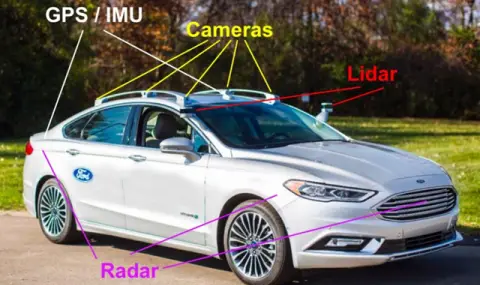American carmaker Ford has filed a patent for technology that will detect speeding by other cars on the road and will automatically report violations to the police. The law enforcement officers, in turn, will receive the driver's data and will be able to impose a penalty.
The patent application, entitled “Systems and Methods for Detecting Speed Limit Violations”, was published by the US Patent and Trademark Office on July 18, 2024, but was filed on January 12, 2023.
In the documentation, Ford describes the use of its cars as means of monitoring the speed of other cars. If a vehicle detects that a neighboring vehicle is speeding, it can use onboard cameras to take a photo of the offender.
A report containing speed data as well as an image of the vehicle with the number plates can be sent directly to the nearest police car or to the slick "watch station" via an internet connection.

The use of private cars for speed control will facilitate the work of law enforcement officers, as part of their road monitoring functions can be transferred to private cars, which will be equipped with a system for detecting and reporting violations.
It is not clear whether such a system will notify the police of speeding on the car itself, on which it is installed. We can only assume that Ford will not dare to allow such a permission, because in this case it can forget about any sales of such a system.
Obviously, Ford will need legal arguments and changes in the law if the company tries to implement this technology, since law enforcement officers will not witness the speeding that will be reported by the connected cars. However, this is similar to the way speed cameras work, which already provide stationary speed control when installed on roads. So such a resolution is quite real and likely.
It should be remembered that this is currently only a patent. There is no information that such a system is being developed or will be implemented. Ford, like many other companies, regularly files patent applications for new automotive technologies, not all of which make it into production.
